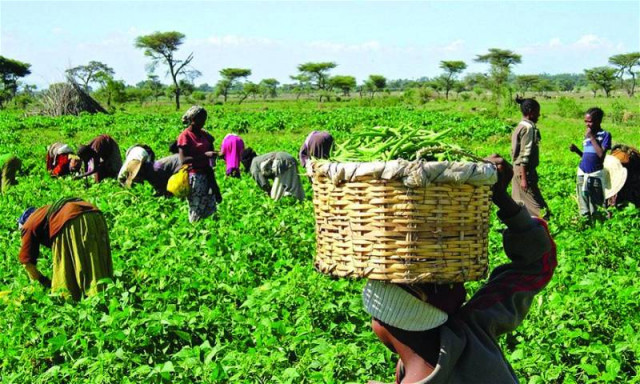ABUJA, Nigeria - Some ginger farmers in the Bwari Area Council of the Federal Capital Territory (FCT) have voiced concerns about the upcoming 2025 ginger planting season due to a shortage of seedlings and other critical factors.
The farmers shared with reporter on Tuesday in Abuja that there is an urgent need for government and relevant stakeholders to intervene in this matter.
Recall that in 2023, ginger farmers experienced significant losses in their production caused by a “fungal disease,” which led to a considerable decrease in both production and supply of the crop since then. The Federal Government estimated the losses to exceed N12 billion in 2024.
A ginger farmer from Bwari, Philip Akuso, stated that the uncertainty surrounding the crop's potential for a good harvest, if planted, is a 50-50 situation.
He noted that many farmers are without access to quality seedlings due to the devastating disease from the previous farming season.
Akuso highlighted that the inability to obtain healthy seedlings has impacted their harvest, consequently driving up the price of ginger in the market due to limited supply.
He mentioned that since the incident in 2023, ginger scarcity has persisted and prices have consistently risen.
“By December 2024, a bag of ginger was priced at N350,000, but earlier this year, it ranged between N650,000 and N800,000 at some points, although it has now decreased to about N700,000,” he said.
Akuso further expressed that this situation is troubling for Bwari farmers, who are not only struggling with the lack of good seedlings but also face financial and security issues.
While some farmers have managed to source supplies from nearby producing areas like Kachia and Jaba in Southern Kaduna, others cannot afford to do so and remain affected by prior losses.
“In my opinion, only affluent individuals can currently engage in ginger production because it requires substantial capital, especially for purchasing quality seedlings.
Farmers in the neighboring Kaduna State successfully produced last year and have stockpiled some bags for sale as well as quality seedlings for the next planting season.
Very few of us in Bwari succeeded with our production last year and are considering trying again, but many are hesitant because they have suffered significant losses and have not yet recuperated from the fungal infections on their crops.
However, we remain optimistic about achieving a good yield by year-end,” the farmer said.
Akuso appealed for the government to expedite their research to find a lasting solution to the problem.
Similarly, another farmer from Bwari, Somo Yakubu, mentioned that he was fortunate to save at least two bags from last year’s harvest, planning to use them for the upcoming planting season.
Yakubu noted that many farmers in Kawu-Bwari, where he lives, were fortunate with their 2024 harvest since the disease did not strike their crops early, allowing them to mature nearly fully before harvesting.
“There was no remedy available; it was merely through divine intervention. It's a necessary risk to take; who knows, we may be fortunate again this year,” he remarked.
However, Yakubu cautioned that insecurity remains a significant factor that might deter many farmers from returning to their farms due to fears of kidnapping.
He urged relevant stakeholders to address these issues. Phoebe Albert, a consumer who also produces and sells hibiscus flower drink, commonly known as ‘zobo,’ lamented the soaring prices of ginger in the market.
Albert recounted that she recently purchased ginger worth N1,000 but received only four small pieces.
“Obtaining ginger for N500 is now impossible; sellers might only give you one piece for that amount.
The situation is dire, especially as more people are realizing the health benefits of ginger in organic foods, herbs, and spices.
We still have not met local consumer demand, and we continue to sell beyond our borders and export to other countries.
Given its significant economic value, it should be a governmental priority to urgently address the issue,” she emphasized.




















